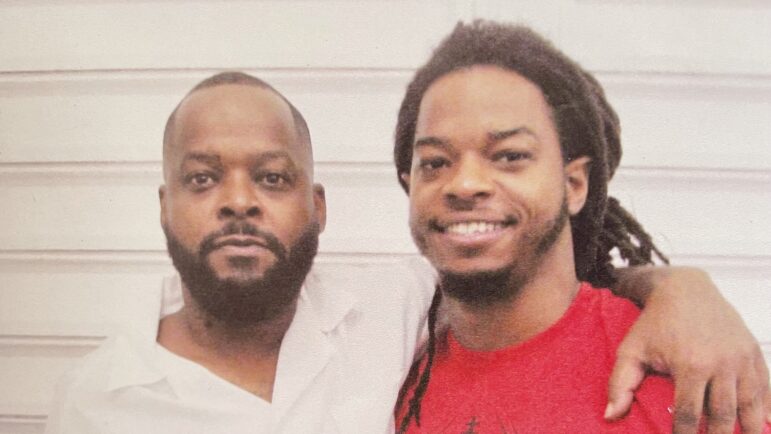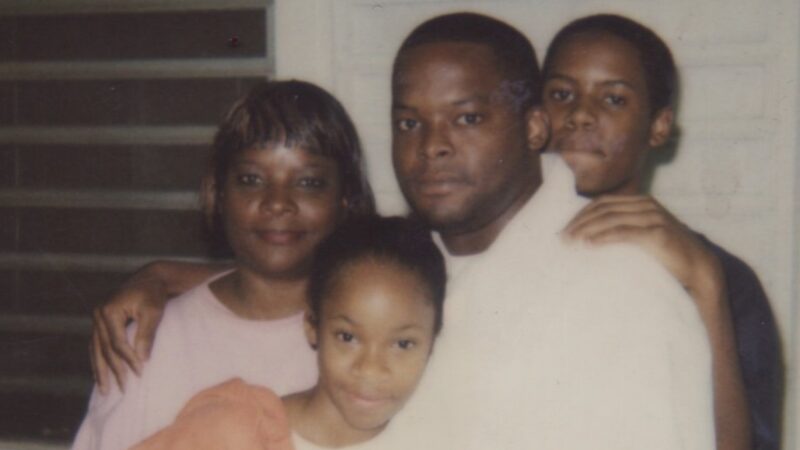Q&A: Is an innocent man on Alabama death row? Here’s the latest on Toforest Johnson’s case
Judges, prosecutors and faith leaders have called for a second look at the case of Toforest Johnson, a Black man who faces a death sentence in Alabama.
Johnson has been incarcerated for more than two decades in connection with the 1990s fatal shooting of a sheriff’s deputy, but advocates from a growing movement have raised questions about what they say is shaky evidence against him. This includes a key witness who wasn’t present at the crime scene and was paid for her testimony — an incentive not revealed to Johnson’s lawyers for years, reports said.

Alabama has kept a steady pace of executions this year, with two more planned this year. As they proceed, Johnson’s case is a high-profile example of the stakes of capital punishment in the South, and how a labyrinthine justice system can ensnare people for years — even when questions surface about their potential innocence.
Journalist Beth Shelburne investigated Johnson’s case in her acclaimed podcast “Earwitness.” She probed court documents and spoke to witnesses, family members and even the prosecutor who sought Johnson’s conviction.
A year after the podcast’s release, Shelburne caught up with Gulf States Newsroom’s Kat Stromquist to share the latest updates in the case.
The following conversation has been edited and condensed for clarity.
In your podcast, you say you started covering Toforest Johnson’s case years ago, after a hearing to determine if prosecutors wrongly hid evidence. When did you first think, OK, there’s something here to dig into?
Right. It was an evidentiary hearing on a claim that Mr. Johnson presented of prosecutorial misconduct because it was revealed 17 years after he was convicted that the key witness in his case, the “earwitness,” was paid $5,000 for her testimony.
Going into that hearing, that’s all I knew about the case. And I knew that a sheriff’s deputy had been shot and killed in 1995 and Toforest Johnson had been convicted. It was interesting to me, the secret reward payment and this claim of prosecutorial misconduct.
The more I learned about the lack of evidence connecting Toforest Johnson to this crime — that the entire case against him is predicated on the word of this single witness who was paid in secret for her testimony — and that alone sent him to death row — that’s when I realized this is an extremely compelling case to examine, not just a possible wrongful conviction, but the entire criminal justice system and death penalty apparatus.
If you could, for people who aren’t familiar, just run down a couple of things that are so unusual about this case.
So, there is no direct evidence connecting Toforest Johnson to this murder. There’s no forensic evidence. There were no eyewitnesses placing him at the scene. There was no murder weapon recovered. And he’s always maintained the same alibi, with at least ten witnesses to back him up, that he was across town when this murder happened.
The key witness, the “earwitness” in this case, claims that she overheard a phone call in the weeks after the murder — a phone call that she eavesdropped on. She claims she overheard Toforest Johnson talking to a friend about the crime.
And that is the crux of her “earwitness” testimony, is a three-way phone conversation that she eavesdropped on, with no recording of that phone call and no real way to verify that what she claims she heard is actually what was said.

This case has been going on since the 1990s and it’s also been a whole year since your podcast came out. And Toforest Johnson is still on death row. What’s been happening since then?
There have been a lot of people that have heard the podcast series “Earwitness,” and many of those people have felt compelled to join the campaign on Johnson’s side asking for a new trial. That’s not just regular citizens, but it’s two former Alabama governors, two men who served as Alabama’s attorney general, several prosecutors, including two current district attorneys, and several retired judges, including two who served as chief justice of the Alabama Supreme Court.
Lots of powerful people have signed on to advocate for a remedy in this case. There’s also several different campaigns that are being coordinated by an organization called Greater Birmingham Ministries. There’s a banner that has been traveling the state.
A lot of people are talking about this case. And as you mentioned, Toforest Johnson is still on death row. He has several appeals in both state and federal courts that are winding their way through the courts, and is hoping that all of the attention the podcast series has brought to his case will create more momentum to let the courts finally do the right thing.
A lot of people have asked me, what is the problem here? You’ve got the district attorney and the former prosecutor — what’s holding this up? Who has the power? And the answer is, it’s Alabama’s attorney general. That’s the problem. And so, because the state represented by the attorney general is there to litigate death penalty cases, the attorney general’s office really has to green light a new trial.
But you have these former prosecutors and the current district attorney calling for a new trial. And the attorney general’s office is essentially ignoring it, calling it subjective opinion.
So, you have these two diametrically opposed positions by people in power.
You’ve said that if Johnson is set for execution, it could be the biggest death penalty story in the world. Why would that be?
Well, I think whatever happens ultimately in Johnson’s case, if the courts do the right thing and grant him a new trial, and he is ultimately freed because there is no other evidence other than the “earwitness” testimony — that’s a huge story in the examination of the death penalty. This man has spent 26 years on death row, and that deserves some serious study as to, “How did this happen?” And “Why did it take so long to overturn his case?”
I think if, God forbid, the ultimate outcome is that the state of Alabama gets a death warrant and executes Toforest Johnson, that certainly will be the biggest story in the death penalty world, because anyone who’s taken a serious look at this case, at the very minimum, believes he deserves a new trial. But almost everyone comes away saying, I believe this man is innocent.
So either way, as this case approaches its conclusion — which it’s now in its 26th year — he has very good legal representation and some outstanding appeals, but that probably means just a couple more years. And when you’re on death row, that’s not very much time.
You spent years doing these interviews, digging through court documents and investigating Toforest Johnson’s case. What do you think might happen next?
I think that there’s a very good chance Johnson’s case could get back into Jefferson County court. They are hoping that happens in 2025, to have some new conversations in front of a judge about questions surrounding the credibility of this “earwitness.” I think that there’s a good chance that could happen and there could be a positive result from that.
But again, we are in Alabama. And these cases, even when evidence of innocence is overwhelming, often don’t go the way that people think and hope they will.
I wish that I could predict what’s going to happen. I try to reside in hope, and that the right thing will happen, and justice will prevail. But you just never know.

This story was produced by the Gulf States Newsroom, a collaboration between Mississippi Public Broadcasting, WBHM in Alabama, WWNO and WRKF in Louisiana and NPR.
Pentagon puts Scouts ‘on notice’ over DEI and girl-centered policies
After threatening to sever ties with the organization formerly known as the Boy Scouts, Defense Secretary Hegseth announced a 6-month reprieve
President Trump bans Anthropic from use in government systems
Trump called the AI lab a "RADICAL LEFT, WOKE COMPANY" in a social media post. The Pentagon also ordered all military contractors to stop doing business with Anthropic.
HUD proposes time limits and work requirements for rental aid
The rule would allow housing agencies and landlords to impose such requirements "to encourage self-sufficiency." Critics say most who can work already do, but their wages are low.
Paramount and Warner Bros’ deal is about merging studios, and a whole lot more
The nearly $111 billion marriage would unite Paramount and Warner film studios, streamers and television properties — including CNN — under the control of the wealthy Ellison family.
A new film follows Paul McCartney’s 2nd act after The Beatles’ breakup
While previous documentaries captured the frenzy of Beatlemania, Man on the Run focuses on McCartney in the years between the band's breakup and John Lennon's death.
An aspiring dancer. A wealthy benefactor. And ‘Dreams’ turned to nightmare
A new psychological drama from Mexican filmmaker Michel Franco centers on the torrid affair between a wealthy San Francisco philanthropist and an undocumented immigrant who aspires to be a dancer.







